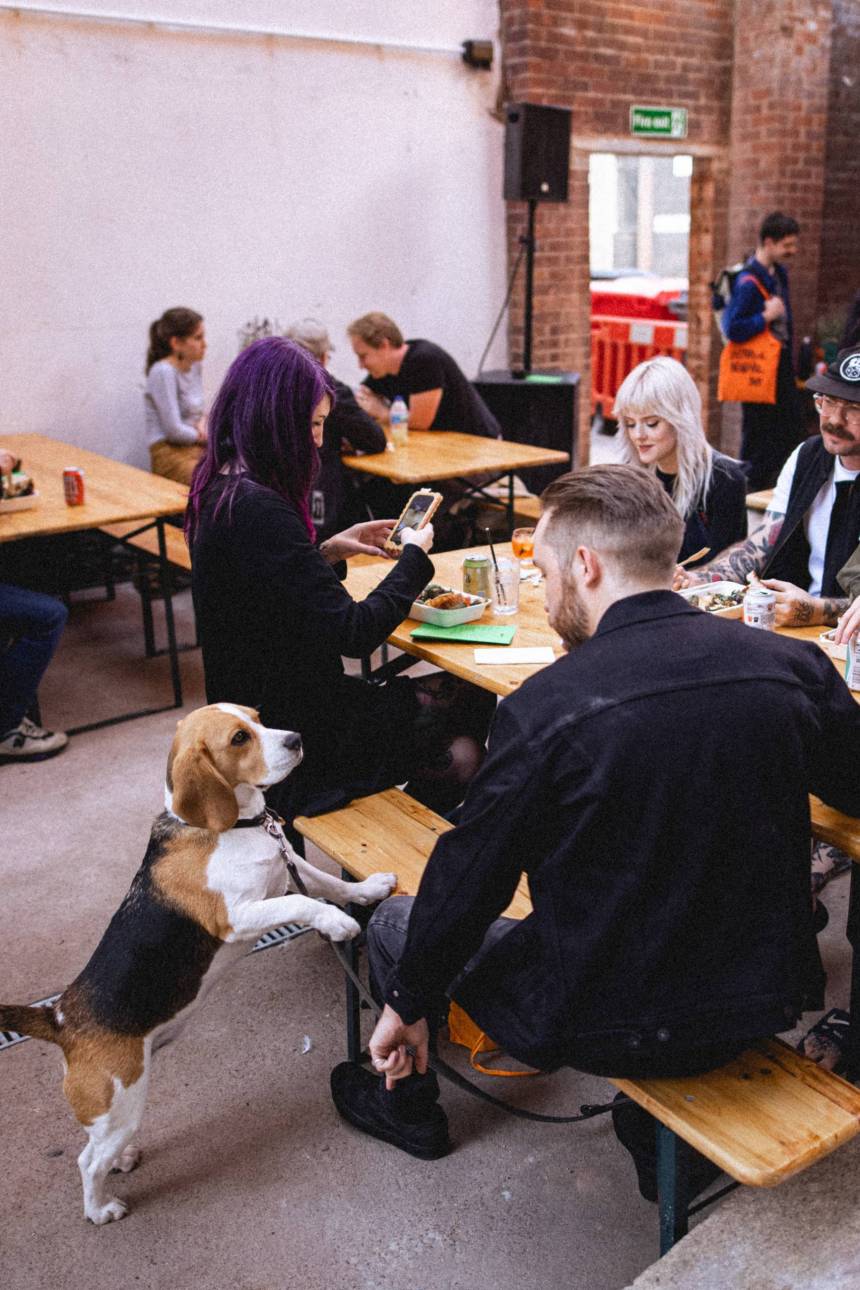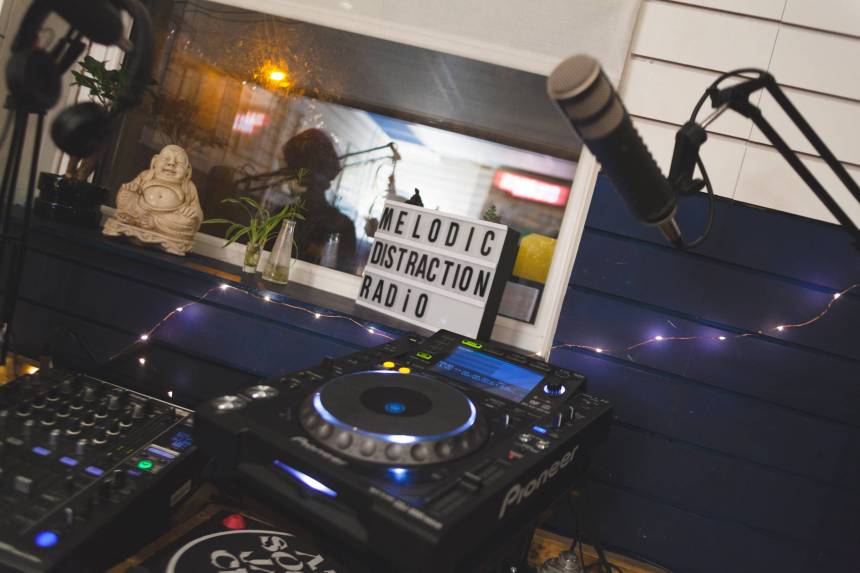In our new Radio Lowdown feature series, we turn our radar onto some of the most progressive, independent internet radio stations on the rise in the UK. First up is Liverpool’s Melodic Distraction: A beacon that’s been broadcasting the city’s scene since 2016. We chatted to studio maestro Nina Franklin (AKA Lupini) to find out what makes Melodic tick.
What drew you to Liverpool? Did Melodic Distraction grow naturally out of your involvement with the scene, or was it picked out as a location to broadcast from?
Melodic Distraction grew as a post-university project for co-founders James Zaremba and Josh Aitman who ran Melodic Distraction as a party in Liverpool, booking primarily house and disco artists. At one of these events in 2016, they met fellow internet radio enthusiast, Tom Lye and they decided to move towards writing music reviews and blog features online. Naturally enough, uploading DJ sets from friends followed and before you knew it, Melodic Distraction as a radio station was born!
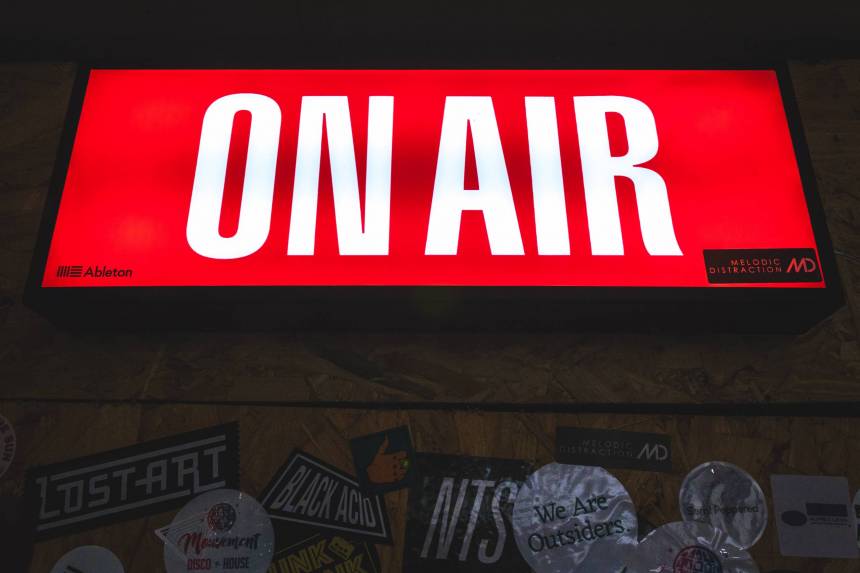
Some of the UK’s most successful online radio stations like yourselves as well as 1020, NTS and Balamii have a become new hotbed to hear exclusive Dubplates, White Labels, VIPs and unreleased material from lesser-known artists. Are online radio stations the internet age’s answer to pirate radio?
Yes, I think in a way, but they are also distinctly individual from one another. There’s definitely a similarity to pirate, in that you can find stations that specialise in niche micro-genres, but now the listernerships and DJs can come from anywhere in the world, rather than in a local AM or FM catchment area. This global approach definitely changes things. We’ve had people patch in to broadcast from as far away as America, Europe, Australia, and all over the world. There’s more cross over with community radio it’s a space that allows up-and–coming DJs to practice and find their sound. In that way, it’s also close to pirate though, plenty of hosts also make music, so they try out their white labels, VIPs and unreleased material on air before taking it to a club.
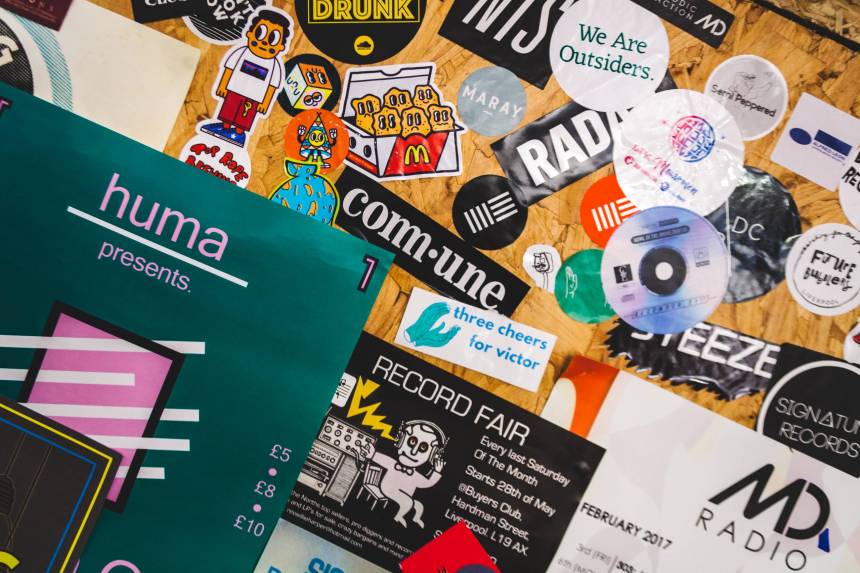
You have a category for ‘Spoken Word and Discussion‘ broadcasts at Melodic Distraction. Do you think modern listeners are seeking out music-focused chat on radio, as well as hunting for new tracks?
Personally, for me, I think that human voice is always such a key part of radio. There’s plenty of really good shows that are just music or mix shows, but nothing quite compares to the feeling of waking up to the same voice every day, or checking in with your favourite radio hosts week-in-week-out. People develop such a fondness for their favourite radio personalities, and that’s just to do with hearing their chat.
You can check Lupini’s latest ‘Soup to Nuts’ show on fellow digital radio station NTS here.
Are there advantages to broadcasting out of the Northwest vs say London, Bristol or Berlin?
Hm, I think it’s hard to compare. We’ve only ever broadcast out of Liverpool, and there’s always been a focus of pushing the talent of the North West, so that’s what we stand for. For sure, there’s differences – both good and bad. In some ways, the problems are the benefits, just viewing from a different perspective.
For example, plenty of famous musicians, DJs and producers live and work in cities like London, Bristol and Berlin, but that’s not really the case for Liverpool. We know that the music industry is top-heavy and almost entirely centred around London, Bristol and Paris. The music scene here is not international. It’s hard to break through here. But that means the scene here is cohesive, proud & individual. There are fewer egos, and people are much happier to work together to build something simply for the reason that it’s lovely and it’s fun. There’s a great power in that.
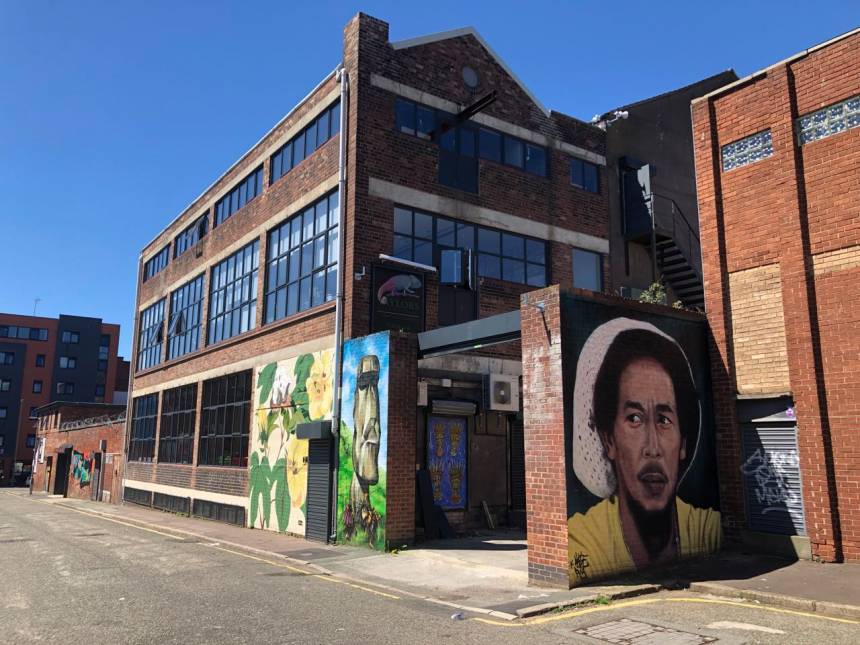
Velocity Press specialises in printing dance-floor-driven literature and books about club culture, any interesting books or music writing that anyone from the station can recommend?
Yes! Here are some of Lupini’s favourite books on music that she’s enjoyed in the last couple months:
The KLF: Chaos, Magic and the Band who Burned a Million Pounds – John Higgs.
Whilst the KLF were London-based, there’s a strong Liverpool connection. Bill Drummond had previously played in Liverpool band Big in Japan. Anyone who’s spent long enough here can identify with the passage talking about The Grapes (on Roscoe St) or the psychedelic energy you’ll still find running through the city.
Healing Songs – Ted Gioia
Whilst not about electronic music especially, this history of music as a healing tradition is a really moving read. This the same Ted Gioia you might recognise as a jazz critic and music historian.
Any local DJs, Producers or events you’ve been particularly impressed by recently that you’d like to shout out in particular?
Oh, there’s too many! We’re sure to accidentally miss someone out, so this is just a short snippet from off the top of our heads. Definitely wanting to shout out Dialect, Boom Bap, Humble Abode, The Beatriarchy, Mo Ayoub, Shifting Spheres and Tubz!
Are there any shows that you’ve hosted over the last few years that you are particularly proud were first broadcast on Melodic?
Hmm, having Loyle Carner with us in the studio in 2018 was pretty special!
What traits make a great radio host? What separates an engaging host from an average one?
Obviously there are some skills that come into it, but these are all ones that can be learnt – microphone technique, managing nerves, being prepped for a show. But in terms of presentation? We could write down a thousand tips, and then someone could come through and not do any of them but be engaging and good to listen to. There really are no rules. The only trick is to be yourself. Whether that’s peppy, coy, cheerful, gruff – whatever is you, that’s what you need to chase down and amplify to be a good radio host. Really excellent hosts are never trying to be excellent radio hosts: They’re just being honest and upfront about sharing an aspect of themselves with the listener.
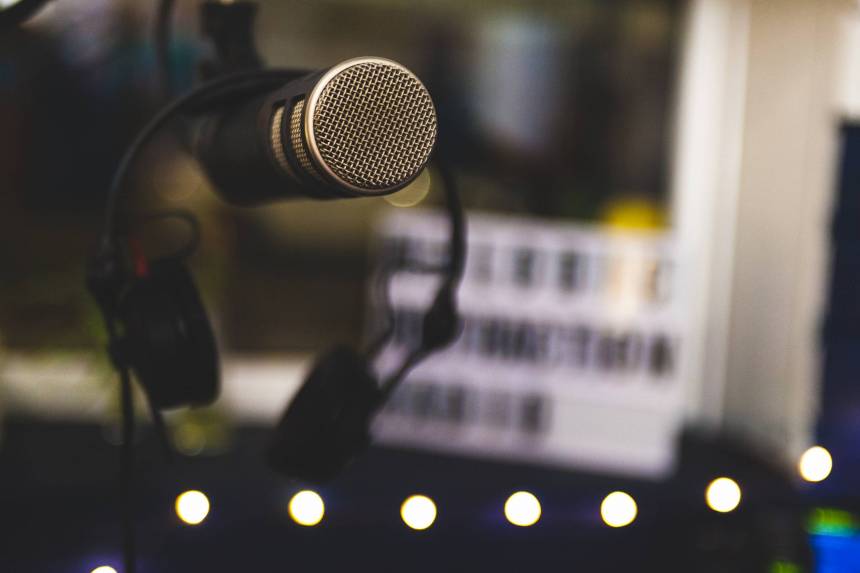
Is there anything traditional commercial radio can, or should, learn from online digital radio? and vice versa?
I think the power in online digital radio is that they can give hosts lots of freedom to explore sounds they really want to. There are no rules, playlists or content control in that way. I think commercial radio would do better to let their hosts play what they want!
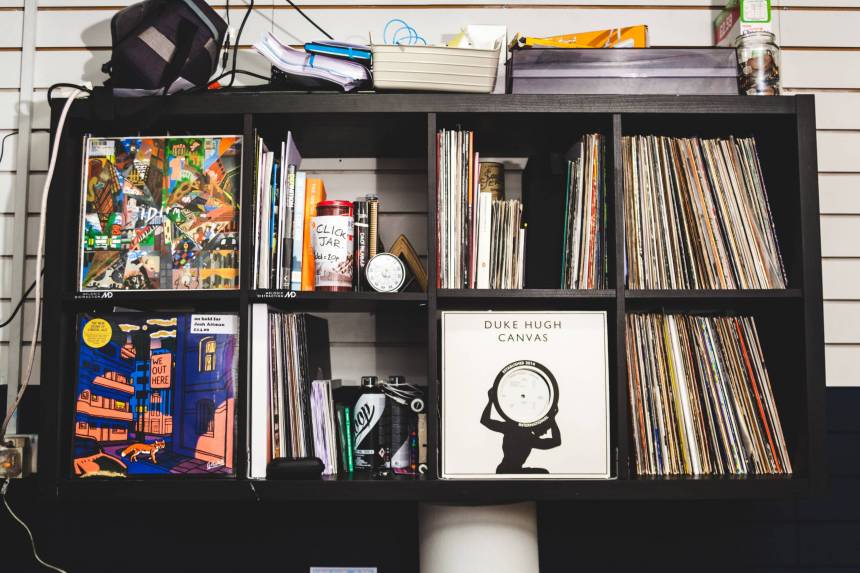
When Melodic Distraction was threatened with closure, a brand collaboration with Dr. Martens landed you guys some broadcasting space and helped keep the station afloat. How did the partnerships come about, would you say it’s an example of how brands can work with radio in a positive way?
Yeah, Dr Martens were really great with us and it was a really organic partnership. They just wanted to help, at a time when we really needed it. It was definitely an example of how working with a brand can be really positive and constructive. Props to Docs for keeping us operating before we moved into our shipping container studio, which you can see a blueprint of below.
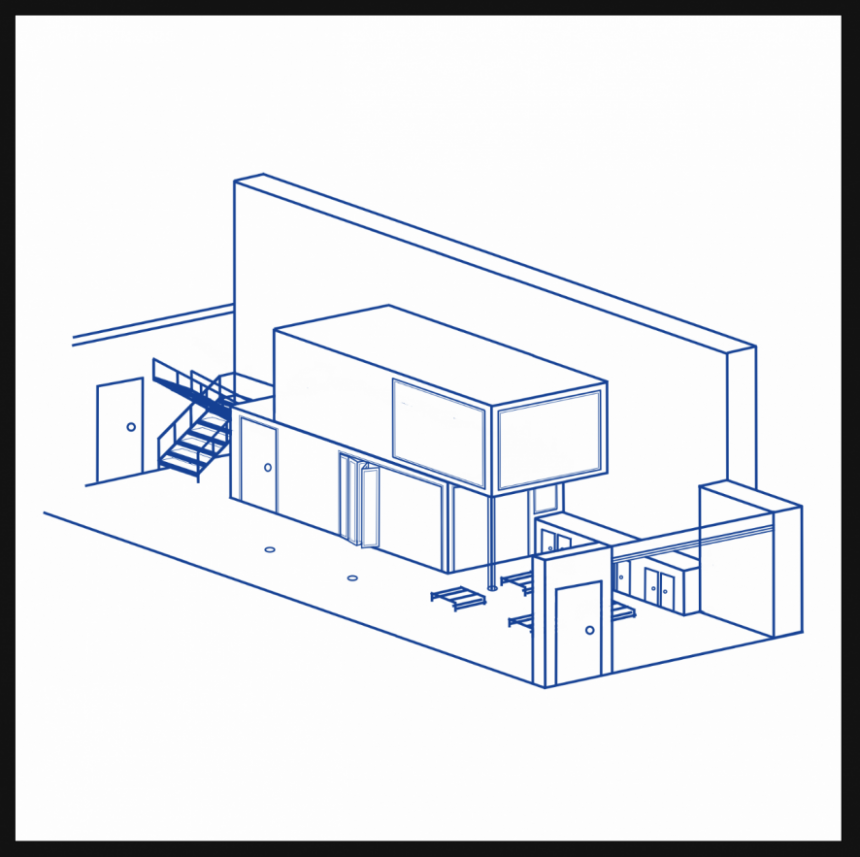
At Velocity Press, we’ve been researching club closures for an updated version of Brian Belle-Fortune’s All Crews. Apparently over 80% of clubs in Liverpool have been struggling to pay rent. 24 Kitchen Street seem to be fighting to stay open and Melodic have had your own location issues. Is there anything listeners can do to help? Anything you feel local councils or the government should be doing too?
Yes, there’s been plenty of troubles between music venues and local councils. This isn’t unique to Liverpool. All over the country, music venues, radio stations and creative spaces are struggling. I think it’s important for listeners to realise that if they want these spaces to exist they need to use them, and support them. Buy a t-shirt from a local company rather than going to H&M! Choose to drink in your local, not a Wetherspoons. Plenty of radio stations run ‘supporter schemes’ like the Noods Luvver scheme or NTS Supporters and these can be a lifeline for radio stations. We’re lucky to run Melodic Bar & Coffee too. If you’re ever in Liverpool and fancy listening to some tunes over a coffee or a pint come pay us a visit!
